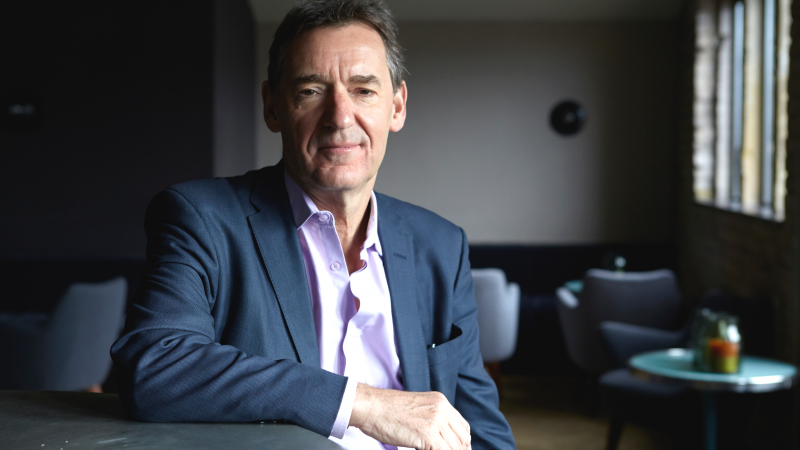EXCLUSIVE: Influential economist Lord O’Neill has called on the Government get serious about getting pension funds to invest long-term capital in venture capital funds.
The Treasury, he says, needs to stop being so obsessed by the level of national debt and instead have a coherent long-term investment strategy for supporting business.
Giving evidence to the Treasury Select Committee last week, Lord O’Neill – who is now chairman of new university spinout fund Northern Gritstone – said he would be comfortable with UK debt rising to 100 per cent of GDP, providing that debt was being spent on investment. The current level of debt to GDP is 85 per cent.
Lord O’Neill said he’s experienced the UK’s short-termism when it comes to growth investment raising money for his own Northern Gritstone northern university spinout fund, which hopes to close its first £150m investment tranche before April.
Investment Big Bang
He supports the Government trying to loosen the rules around how pension funds can invest, freeing them from EU rules, enabling them to invest more in venture capital. Prime Minister Boris Johnson has called it an “investment Big Bang”.
Lord O’Neill said: “I would say to the Chancellor, please be bold about trying to get more long-term capital into the VC space.
“It’s quite incredible how cautious our very large investment community in the City is when it comes to genuine risk taking. To try and change the incentives and rules to enable pension funds and asset managers to invest in venture capital would be fabulous.”
Part of the problem is that the Treasury is constrained by the Office for Budget Responsibility’s debt forecasts, which hold the country hostage when it comes to long-term thinking, he argues.
Lord O’Neill said: “Every Budget we come up with a small number of policies announcements that are constrained by the OBR. Their changing economic forecast has a bigger impact than anything the Chancellor announces. The game is that they come up with a debt forecast that’s smaller than it is today, and basically that’s fiscal policy against the background that any level of debt is too much, so we never have any money to invest in anything.
“If we carry on this same never-ending game, we’re stuck in this cycle where we nothing ever happens except the national debt level just gets higher and productivity remains weak.
“We need to have a much more serious to investment spending. It’s the Achilles heel here in the UK. We don’t have much evidence of patient investment capital, either in the private sector or supported by the state. We’re so laisser-faire that the market knows best but if you look at our dismal productivity record in the country, it’s not been thought through.”
Back in May 2020, Lord O’Neil called for a £25bn patient capital fund to recapitalise firms and promote new business development. Although the idea gained considerable interest both in the media and within Treasury and Downing Street, the proposal faded “because of the complexities of this particular government,” he chuckles diplomatically.
“This is the sort of sophisticated thing that other countries do and we should be doing the same,” he says.
‘We live in an era where it’s fashionable to make a lot a lot of noise about stuff to satisfy social media’
The former chairman of Goldman Sachs asset management was one of the prime movers of the whole Northern Powerhouse concept, championed by former chancellor George Osborne, which evolved into this Government’s levelling-up agenda. So what did he think of levelling-up minister Michael Gove’s recent whitepaper?
Levelling up whitepaper
Lord O’Neill said: “I personally thought Gove’s paper was pretty good. We live in an era where it’s fashionable to make a lot a lot of noise about stuff, which seemingly satisfies social media, but it’s pretty clear to me how instrumental their talk on levelling-up they won’t survive for too long without the support of northern voters. Gove’s got the intellectual firepower to get on with this.
The former Conservative minister sees Northern Gritstone, which eventually hopes to raise £500m to support spinouts from the universities of Leeds, Manchester and Sheffield, as playing its own part in the Government’s levelling up agenda.
Lord O’Neill remembers when studying economics that Boston, Massachusetts was always pointed to as being an economic basket case. Today, the universities of MIT and Harvard have transformed the region. He sees no reason why, given the thrust of net-zero technology manufacturing, why the same thing couldn’t happen to the North-West and North-East. Which is where his Northern Gritstone project fits in.
Lord O’Neill said: “We have some deep-seated productivity problems in this country. Here we are as a country that has around 15 universities often recognised as being among the world’s best, which is astonishing – four times our GDP weight. Half of those universities are in the north of England in low-productivity areas. Surely, they can help restore these proud industrial places of yesteryear to the modern world.”
More on VCs and pension fund reform
Key to tech investment lies in hands of pension holders, says Sunak






